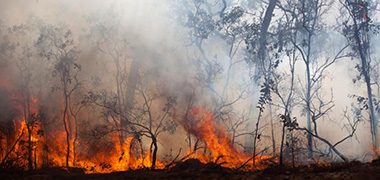
This role has a high level of AI exposure. While some human skills are required, many tasks could be automated or replaced by new technology.
Explore all careersA Conservation Scientist studies and protects ecosystems by managing habitats, monitoring wildlife, and developing strategies for biodiversity preservation.
Browse occupations related to Conservation Scientist



If you are passionate about the environment and looking to make a significant impact, consider enrolling in one of the Conservation Scientist courses in Mildura. These courses provide a solid foundation in the principles of conservation science, equipping you with the skills needed to preserve natural resources and promote sustainability in your local community. With Mildura's unique geography, including the iconic Murray River and its surrounding ecosystems, this region is an ideal place to study environmental sciences. You’ll gain hands-on experience and knowledge tailored to the challenges and opportunities specific to Mildura's environment.
In addition to the focused Conservation Scientist training, you'll find a range of Environment and Sustainability courses that complement your studies. These courses cover vital areas such as Environmental Management, offering insights into strategies for effective environmental stewardship. Through these programs, you can acquire a comprehensive understanding of the critical issues facing our environment, such as biodiversity loss and climate change, and learn how to tackle them head-on.
As you embark on your journey to becoming a Conservation Scientist, it’s worth exploring related job roles that might spark your interest. For instance, you could consider becoming an Environmental Consultant or a Conservation Trainee, both of which offer dynamic career paths in environmental protection and education. Other options include roles like Ecologist or Environmental Manager, which allow you to focus on research and strategic management of natural resources.
With your studies in Conservation Scientist courses in Mildura, you will be well-prepared to step into crucial positions such as an Environmental Specialist or a Conservation Officer. You can also explore opportunities as a Field Assistant, engaging directly in data collection and monitoring of ecosystems. Alternatively, if you enjoy sharing knowledge, you might thrive as an Environmental Educator or an Environmental Advocate. The prospects are vast, and you will have the opportunity to contribute positively to the future of our planet while establishing a fulfilling and impactful career.